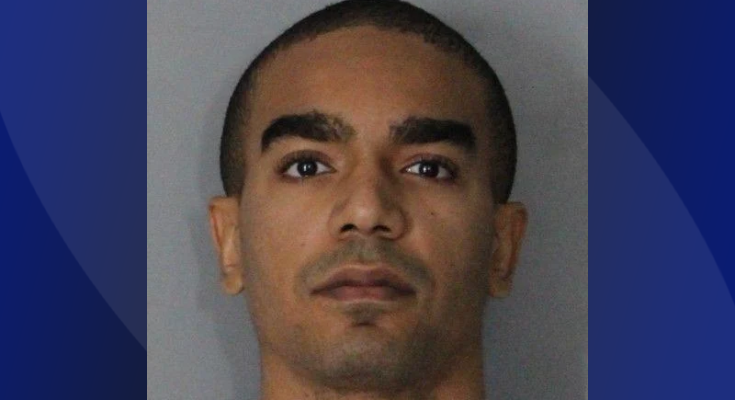David C. Weiss, U.S. Attorney for the District of Delaware announced today that a former University of Delaware student was sentenced yesterday to 87 months in prison and three years of supervised release for cyberstalking and threatening to kill two women while, in the same timeframe, filing fraudulent applications for pandemic relief loans and laundering the proceeds. In addition to the term of imprisonment, the Court ordered the forfeiture of $1,428,664.14 in fraud proceeds from Stevens’ bank accounts. The Honorable U.S. District Judge Richard G. Andrews pronounced the sentence.
According to court documents, Kyle Stevens, 30, met Victims 1 and 2 while they were all students at the University of Delaware during the 2018-2019 school year. The two Victims did not give Stevens the attention he felt he deserved, and he became fixated on them, building a grudge that lasted four years and stretched overseas.
Stevens wrote a document entitled “Stalker Notes,” which showed that he knew he would be arrested eventually, but believed he would be able to avoid repercussions by acting a certain way. Stevens’ talking points included: “right after arrest, repentant . . . can be productive instead of being a waste of tax dollars . . . [and] maybe this won’t have to end as a tragedy of me not doing anything productive with my life.” His focus was on the impact of his actions on himself, rather than the women he threatened or the community at large.
PPP Fraud
Stevens moved to Germany in October 2020 to study abroad. While there, Stevens submitted ten fraudulent applications for COVID-19 pandemic relief loans for small businesses that did not exist. He successfully diverted $1,520,164.14 intended to aid small businesses struggling through the pandemic.
In a note to himself, Stevens wrote that his “current priorities” included mundane tasks like getting a German phone number, as well as “more fraud . . . What’s stopping me from fraud and taking out many 50k loans?”
Cyberstalking
In September 2021, Stevens wrote down a plan to stalk Victims 1 and 2: “vocal harassment builds confidence, so steal, move to her, harass, . . . also harass others/family.” Stevens began sending emails and social media messages to Victims 1 and 2, threatening that he “tried to forgive” them for their perceived slights, but that they would get “payback” and “revenge one way or another.” These messages kicked off a months-long stalking campaign which included repeated threats to put a “bullet in your head,” to “kill you,” or to fire a “gunshot” no one would be “able to block.”
Stevens used any means he could to reach these women, including numerous email accounts, phone numbers and social media platforms. He went so far as to find Victim 1’s father’s Facebook page and send him a message stating he couldn’t “wait to bash your daughter’s skull in.” And Stevens planned in advance, setting a calendar reminder for himself a month into the future with the heading: “Death threat??”
On September 15, 2021 – the same day that he submitted his ninth fraudulent application for a pandemic relief loan – Stevens sent Victim 1 his most explicitly violent threat:
I’m going to slaughter you. I’m going to string you up. I’m going to put you on hooks in the back of a freezer like a f[***]ing cow. . . . I could eat your f[***]ing kidneys like Jack the f[***]ing Ripper, dance in your entrails on the UD mall. . . I can jam a barrel down your throat and see how well you can lie to me then. . . . I’m going to come to you. . . . the police can’t help you. I’m going to come to you. I’m going to kill everyone in the way.
The U.S. Attorney’s Office, working with the U.S. Justice Department’s Office of International Affairs, coordinated with the German Ministry of Justice to extradite Stevens from Germany to face two indictments, for stalking and fraud, on May 23, 2023. German authorities provided further assistance in restraining Stevens’ German bank accounts into which he had deposited pandemic fraud proceeds.
At the time of Stevens’ arrest, German law enforcement agencies seized his cell phone, laptop, and other electronic devices. Within Stevens’ electronic materials, law enforcement found numerous diatribes written by Stevens, with titles like “I Did Not Build This Wall,” “I Hate Pretty Girls,” and “Stalker Notes.” Those writings detailed Stevens’ worldview and justification for his crimes: he believed his life had been unfair, so he was justified in seeking retribution by any means. Because he grew up without the financial resources he desired, he felt justified in stealing as much as he could through fraud. And because the women he met didn’t love him, he vowed to make sure they feared him. Consistent with that worldview, Stevens’ writings also noted that he identified with “incels” or “involuntary celibates” – men whose primary grievance is a lack of sexual attention from women.
U.S. Attorney Weiss stated, “The defendant terrorized multiple women and committed over $1.5 million in pandemic relief fraud. He perpetrated this months-long crime spree, harming individual women and the community at large, all from behind a computer in a foreign country. Today’s sentence demonstrates Stevens is not above the law. Our office is committed to rooting out criminals wherever they are, and we will continue to fight for victims.”
“Numerous innocent victims suffered greatly, enduring years of emotional distress and torture, because of Kyle Stevens’ violent harassment and stalking,” said Special Agent in Charge William J. DelBagno of the FBI’s Baltimore Field Office. “In addition to his menacing and predatory behavior, Stevens targeted taxpayers by stealing more than a million dollars of pandemic relief aid. The FBI will always hold accountable those seeking to victimize others for their personal gain and gratification.”
Assistant U.S. Attorney Carly A. Hudson prosecuted the case, which was investigated by the FBI.
Source: USDOJ

